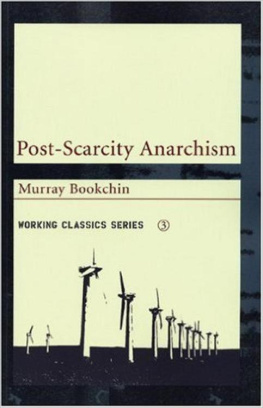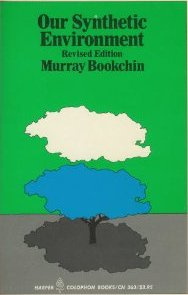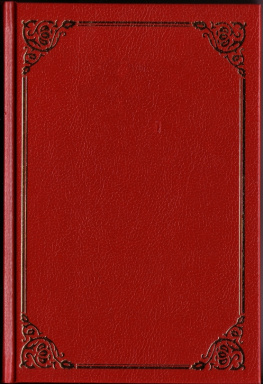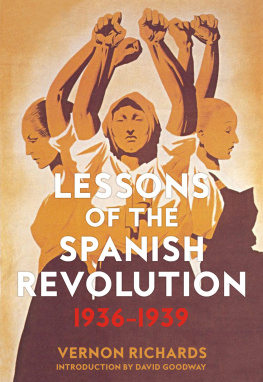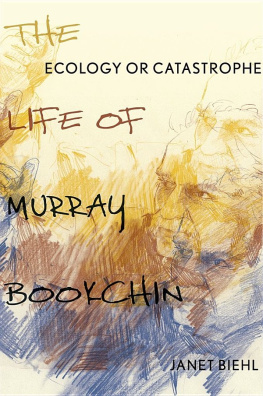Murray Bookchin - To Remember Spain: The Anarchist and Syndicalist Revolution of 1936
Here you can read online Murray Bookchin - To Remember Spain: The Anarchist and Syndicalist Revolution of 1936 full text of the book (entire story) in english for free. Download pdf and epub, get meaning, cover and reviews about this ebook. year: 1994, genre: Politics. Description of the work, (preface) as well as reviews are available. Best literature library LitArk.com created for fans of good reading and offers a wide selection of genres:
Romance novel
Science fiction
Adventure
Detective
Science
History
Home and family
Prose
Art
Politics
Computer
Non-fiction
Religion
Business
Children
Humor
Choose a favorite category and find really read worthwhile books. Enjoy immersion in the world of imagination, feel the emotions of the characters or learn something new for yourself, make an fascinating discovery.

- Book:To Remember Spain: The Anarchist and Syndicalist Revolution of 1936
- Author:
- Genre:
- Year:1994
- Rating:3 / 5
- Favourites:Add to favourites
- Your mark:
- 60
- 1
- 2
- 3
- 4
- 5
To Remember Spain: The Anarchist and Syndicalist Revolution of 1936: summary, description and annotation
We offer to read an annotation, description, summary or preface (depends on what the author of the book "To Remember Spain: The Anarchist and Syndicalist Revolution of 1936" wrote himself). If you haven't found the necessary information about the book — write in the comments, we will try to find it.
To Remember Spain: The Anarchist and Syndicalist Revolution of 1936 — read online for free the complete book (whole text) full work
Below is the text of the book, divided by pages. System saving the place of the last page read, allows you to conveniently read the book "To Remember Spain: The Anarchist and Syndicalist Revolution of 1936" online for free, without having to search again every time where you left off. Put a bookmark, and you can go to the page where you finished reading at any time.
Font size:
Interval:
Bookmark:
These essays are less an analysis of the Spanish Revolution and Civil War of 193639 than an evocation of the greatest proletarian and peasant revolution to occur over the past two centuries. Although they contain a general overview and evaluation of the Anarchist and Anarchosyndicalist movements (the two should be clearly distinguished) in the three-year struggle at the end of the 1930s, they are not intended to be a full account of those complex events.
It is no exaggeration to say that the Spanish Revolution was the farthest-reaching movement that the Left ever produced, for reasons the essays that follow will make clear. The Spanish proletariat and peasantry, led largely by Anarchist militants whose names will never be known to us, strained the limits of what we in the 1930s called proletarian socialism and went appreciably beyond them. Far more than the leaders of the Anarchosyndicalist National Confederation of Labor and the Iberian Anarchist Federation (CNT-FAI) expected or apparently even wanted, Anarchists and Anarchosyndicalists spontaneously formed the famous industrial and agrarian collectives that so markedly distinguished the Spanish Revolution from any that had preceded it. They provided the militiamen and women who died by the thousands in the early fighting against the Francoist generals who led the military uprising of July 1936 in behalf of the Spanish landlords, the industrial bourgeoisie, and the Church.
The endeavors of the Anarchists and their Left Socialist allies in the Spanish Revolution must never be forgotten, lest todays Left lose a sense of continuity with the revolutionary era its idealism, principles, and ideas. The loss of this continuity would contribute to political opportunism and to a fashionable ideological pluralism that mingles reformist politics with radical rhetoric as the need arises.
The essays that follow attempt to reach a wider readership than do the more academic studies of the events. The first essay, retitled here An Overview of the Spanish Libertarian Movement, consists of my September 1973 introductory essay to Sam Dolgoffs The Anarchist Collectives: Workers Self-Management in the Spanish Revolution 19361939 (New York: Free Life Editions, 1974), which was more of a compendium of excerpts than a comprehensive work in its own right. The second essay, After Fifty Years: The Spanish Civil War, published in New Politics, n.s., vol. 1, no. 1 (Summer 1986), was written to commemorate the half-century anniversary of the Spanish Revolution. I wish to thank my friends Phyllis and Julius Jacobson, the editors of New Politics, for their kind permission to reprint the essay here.
I dedicate this book to the CNT-FAI revolutionaries Gastn Leval and Jos Peirats two astonishingly honest and committed comrades.
Murray Bookchin
Institute for Social Ecology
Plainfield Vermont 05667
February 28, 1993
New Politics, P.O. Box 98, Brooklyn, New York 11231.
In the morning hours of July 18, 1936, General Francisco Franco issued the pronunciamiento from Las Palmas in Spanish North Africa that openly launched the struggle of Spains reactionary military officers against the legally elected Popular Front government in Madrid.
The Franco pronunciamiento left little doubt that, in the event of victory by the Spanish generals, the parliamentary republic would be replaced by a clearly authoritarian state, modeled institutionally on similar regimes in Germany and Italy. The Francoist forces or Nationalists, as they were to call themselves, exhibited all the trappings and ideologies of the fascist movements of the day: the raised open-palm salute, the appeals to a folk-soil philosophy of order, duty, and obedience, and the avowed commitments to smash the labor movement and end all political dissidence. To the world, the conflict initiated by the Spanish generals seemed like another of the classic struggles waged between the forces of fascism and the forces of democracy that reached such acute proportions in the thirties. What distinguished the Spanish conflict from similar struggles in Italy, Germany, and Austria, however, was the massive resistance with which the forces of democracy seemed to oppose to the Spanish military. Franco and his military co-conspirators, despite the wide support they enjoyed among the officer cadres in the army, grossly miscalculated the popular opposition they would encounter. The so-called Spanish Civil War lasted nearly three years from July 1936 to March 1939 and claimed an estimated million lives.
For the first time, so it seemed to many of us in the thirties, an entire people with dazzling courage had arrested the terrifying success of fascist movements in central and southern Europe. Scarcely three years earlier, Hitler had pocketed Germany without a shred of resistance from the massive Marxist-dominated German labor movement. Austria, two years before, had succumbed to an essentially authoritarian state after a week of futile street-fighting by Socialist workers in Vienna. Everywhere fascism seemed on the march and democracy in retreat. But Spain had seriously resisted and continued to resist for years despite the armaments, aircraft, and troops which Franco acquired from Italy and Germany. To radicals and liberals alike, the Spanish Civil War was being waged not only on the Iberian Peninsula but in every country where democracy seemed threatened by the rising tide of domestic and international fascist movements. The Spanish Civil War, we were led to believe, was a struggle between a liberal republic that was valiantly and with popular support trying to defend a democratic parliamentary state against authoritarian generals an imagery that is conveyed to this very day by most books on the subject and by that shabby cinematic documentary To Die in Madrid.
What so few of us knew outside Spain, however, was that the Spanish Civil War was in fact a sweeping social revolution by millions of workers and peasants who were concerned not to rescue a treacherous republican regime but to reconstruct Spanish society along revolutionary lines. We would scarcely have learned from the press that these workers and peasants viewed the Republic almost with as much animosity as they did the Francoists. Indeed, acting largely on their own initiative against republican ministers who were trying to betray them to the generals, they had raided arsenals and sporting-goods stores for weapons and with incredible valor had aborted military conspiracies in most of the cities and towns of Spain. We were almost totally oblivious to the fact that these workers and peasants had seized and collectivized most of the factories and land in republican-held areas, establishing a new social order based on direct control of the countrys productive resources by workers committees and peasant assemblies. While the republics institutions lay in debris, abandoned by most of its military and police forces, the workers and peasants had created their own institutions to administer the cities in Republican Spain, formed their own armed workers squads to patrol the streets, and established a remarkable revolutionary militia force with which to fight the Francoist forces a voluntaristic militia in which men and women elected their own commanders and in which military rank conferred no social, material, or symbolic distinctions. Largely unknown to us at that time, the Spanish workers and peasants had made a sweeping social revolution. They had created their own revolutionary social forms to administer the country as well as to wage war against a well-trained and well-supplied army. The Spanish Civil War was not a political conflict between a liberal democracy and a fascist military corps but a deeply socio-economic conflict between the workers and peasants of Spain and their historic class enemies, ranging from the landowning grandees and clerical overlords inherited from the past to the rising industrial bourgeoisie and bankers of more recent times.
Font size:
Interval:
Bookmark:
Similar books «To Remember Spain: The Anarchist and Syndicalist Revolution of 1936»
Look at similar books to To Remember Spain: The Anarchist and Syndicalist Revolution of 1936. We have selected literature similar in name and meaning in the hope of providing readers with more options to find new, interesting, not yet read works.
Discussion, reviews of the book To Remember Spain: The Anarchist and Syndicalist Revolution of 1936 and just readers' own opinions. Leave your comments, write what you think about the work, its meaning or the main characters. Specify what exactly you liked and what you didn't like, and why you think so.

